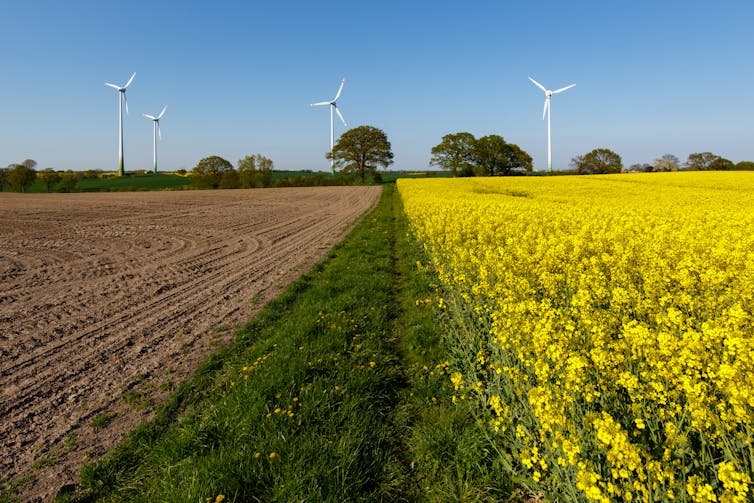��ɫֱ�� the author: is Associate Professor, Sustainable Food Systems and Director of the Rural Research Centre at ��ɫֱ��'s Faculty of Agriculture.
We have heard a lot about , and we need to hear more about what we can do, individually and collectively, to address it.
How might we confront the challenges of the climate crisis — the environmental concerns, mental anguish, physical ailments and political entrenchment? How might we bring about the critical change that these times call for?
Plant-based diets offer one way forward — they have the potential to simultaneously help tackle the climate crisis, prevent disease and improve mental health.
For the past two decades, I have worked with colleagues to examine social, environmental and political challenges from a holistic perspective called systems thinking. This approach focuses on the way a system’s components interact and how different systems relate to one another. The approach helps identify systems solutions to current needs — and those in the future.
I have recently edited a book — — that offers systems analyses to address many of the drivers of the global climate crisis.
Plant-based diets for climate
An international coalition of scientists has recently , including managing refrigerants, building onshore wind turbines, reducing food waste and shifting to plant-rich diets.
Animal foods demand a , than plant-based foods. For example, the carbon cost of beef is about .

More sustainable land-use practices, a focus on restoring ecosystems and could help decrease greenhouse gas emissions from food production. For example, cultivating plant-based foods, like enable the channelling of resources, like water, land and fuel, to increase the amount of food produced, reduce emissions from agriculture while enhancing soil health.
Eating to tackle disease
There’s compelling evidence to suggest that plant-rich diets offer health benefits.
Large studies of people living in western countries who consume diets richer in vegetables, legumes and grains show some protective effects. They are and are , compared to people who regularly consume meat.

Mediterranean-type diets, which emphasize plant-based foods and protein sources, can .
Nutrition for mental health
Canadians rank climate change as . This is leading to the phenomenon of — feelings of .
Being angry or anxious about climate change isn’t a pathology. It is normal to have reactions to adversity — like feeling grief when a body of water is polluted or loss when a woodlot is cut down — and such reactions .
Read more:
An individual’s . One might fly less, choose a plant-based diet or walk more. These actions can also offer additional benefits, like better health, more pride of place and a greater sense of personal efficacy.
Frances Moore Lappé, author of Diet for a Small Planet, recently advised readers .
When eco-anxiety takes on the forms of , however, it becomes more troubling. Yet some research shows that what you eat can affect your mood.
One study of healthy Seventh Day Adventist men and women found that vegetarians reported . Another study found .
Governments need to lead
Governments can adopt policies and practices that support more efficient, ethical and sustainable production of food. Not only would this help reduce emissions from food systems, showing environmental leadership would alleviate some of the anxiety mounting in many citizens.
Some by envisioning and articulating a .
Read more:
The collection of evidence is compelling that reducing food waste, increasing plant-rich diets, practising conscious consumption and improving food systems can help to improve mental and physical health and displace anxiety.
Collectively and individually we can heed the best in science, while also bringing out the best in humanity, by adopting proven strategies to address these pressing challenges.![]()
which features includes relevant and informed articles written by researchers and academics in their areas of expertise and edited by experienced journalists.
��ɫֱ�� is a founding partner of The Conversation Canada, an online media outlet providing independent, high-quality explanatory journalism. Originally established in Australia in 2011, it has had more than 85 commissioning editors and 30,000-plus academics register as contributors. A full list of articles written by ��ɫֱ�� academics can be found on

